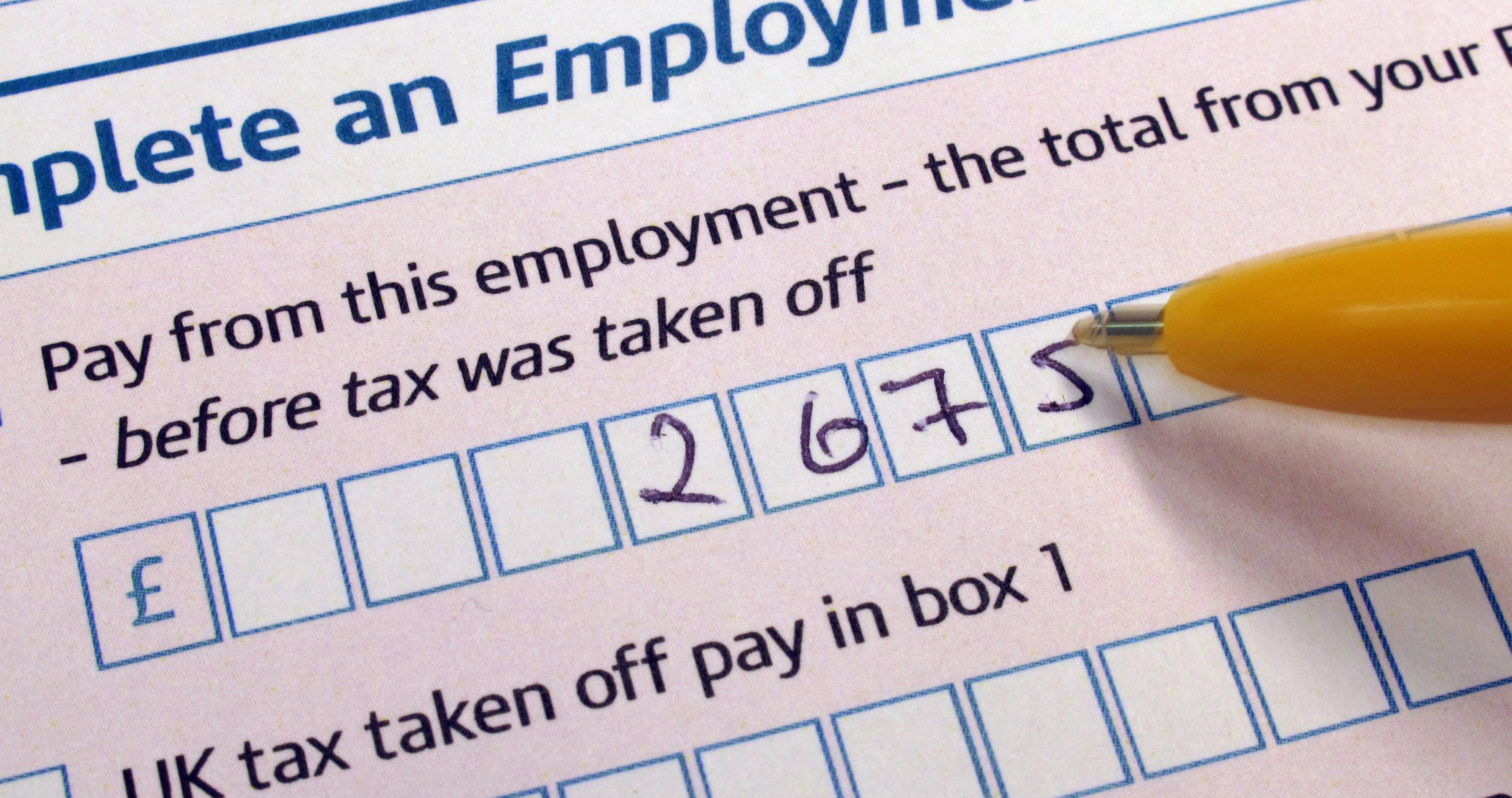Claim your own tax rebates, Which? warns, as payers lose thousands to refund firms
As the self-assessment deadline looms, taxpayers are being warned against using expensive third parties for rebate claims they can submit for free

Taxpayers are being warned off using third parties to claim rebates, as they could forfeit up to half the money owed in fees.
Consumers may be eligible for a tax rebate if they have paid too much tax, perhaps from current or previous jobs, on interest from savings or PPI, on foreign income or from pension payments.
Tax refund companies typically take cuts of 25 per cent to 48 per cent, and when additional service costs are added, customers are sometimes left with less money than the firm which processed their rebate, with some even using HMRC styling, colours and fonts to entice customers.
That’s despite the fact that tax rebates are free to claim via the real HMRC.
More than 200 commercial firms have “tax reclaim”, “tax refund”, “tax claim” and “tax rebate” in their names on Companies House, and “tax rebate” gets 40,500 internet searches a month.
An investigation by consumer group, Which? found that one in five people had been contacted by a tax refund company, heard of one or come across one online.
But mention of those costs and fees seem opaque at best. Four out of the 14 companies investigated had no mention of the fees they charge on their main website page or in their FAQs section, for example, while the term “no win, no fee” was used in some cases.
Which? found that services offering help with claiming Marriage Allowance are particularly common.
This tax break lets one partner transfer 10 per cent of their tax-free personal allowance to their spouse, providing their spouse earns less than the current personal allowance. It can reduce the couple’s tax bill by up to £252 a year, while a backdated claim can be made for up to £1,220.
“Huge numbers of people are coming into contact with firms seeking to entice them into handing over potentially hundreds of pounds of their tax rebate in unnecessary and hard-to-justify fees,” says Jenny Ross, Which? money editor.
Taxpayers can claim directly from HMRC at gov.uk/claim-tax-refund to avoid “footing any unnecessary bills”.
There’s no charge, and successful claimants receive 100 per cent of the rebate. In some instances, HMRC will grant tax rebates automatically.
According to the Consumer Rights Act 2015, customers must be charged a “reasonable amount” for a service. However, for a fully backdated Marriage Allowance claim, for example – worth £1,220 – some tax refund companies charge nearly half in commission.
Tax Credits Ltd takes £585.60 on a service fee of 48 per cent.
“We spend a significant amount on marketing and providing access to this potential tax relief. In many cases it’s our advertising, not HMRC’s, that makes a person aware of it,” the company said in response to the Which? report.
“We then present the claimant with a simple mechanism to access the potential overpayment of tax. Our remuneration is contingent on a repayment being secured, and the amount we retain is reflective of this.”
Customers that choose to use rebate companies are usually asked to sign legally binding contracts called a “deed of assignment” giving the tax refund company permission to make a rebate claim on their behalf.
Even more worrying, this could stay in place beyond the initial claim, depending on the terms, allowing the company to take a share of tax rebates the customer is owed into the future, regardless of whether the collector does further work for them.
Unfortunately, there is little customers who are unhappy with the way a tax refund firm has dealt with them can do about it.
These firms aren’t regulated, so aren’t subject to the same rules as claims-management companies, and because they don’t have to be registered with the Financial Conduct Authority to operate in the UK, consumers can’t get help from the Financial Ombudsman Service (FOS).
Consumers are advised to always claim a tax rebate by going directly to HMRC in the first instance. The process for making a claim online is relatively straightforward and the applicant will get 100 per cent of their money. “Always be wary of third-party firms that may appear prominently in online search results, no matter how legitimate they may seem,” warns Which?.
“We don’t accredit or in any way approve agents and take firm action against any not complying with the law,” HMRC has confirmed.
“We encourage customers to come to us to make their Marriage Allowance claim. It takes only a few minutes to complete the online application and eligible claims receive 100 per cent of their entitlement. It is important that people thinking of using a tax agent are clear in advance about fees and are satisfied they’ll get the service they sign up for.”
If you think a contract term is unfair, complain to the trader in the first instance.
If the trader doesn’t agree, seek legal advice before breaking the terms of the contract.
Meanwhile, if you were led to believe that the third party company was an official government website, a complaint can be made to the Citizens Advice Consumer Service on 0808 223 1133.
Subscribe to Independent Premium to bookmark this article
Want to bookmark your favourite articles and stories to read or reference later? Start your Independent Premium subscription today.

Join our commenting forum
Join thought-provoking conversations, follow other Independent readers and see their replies